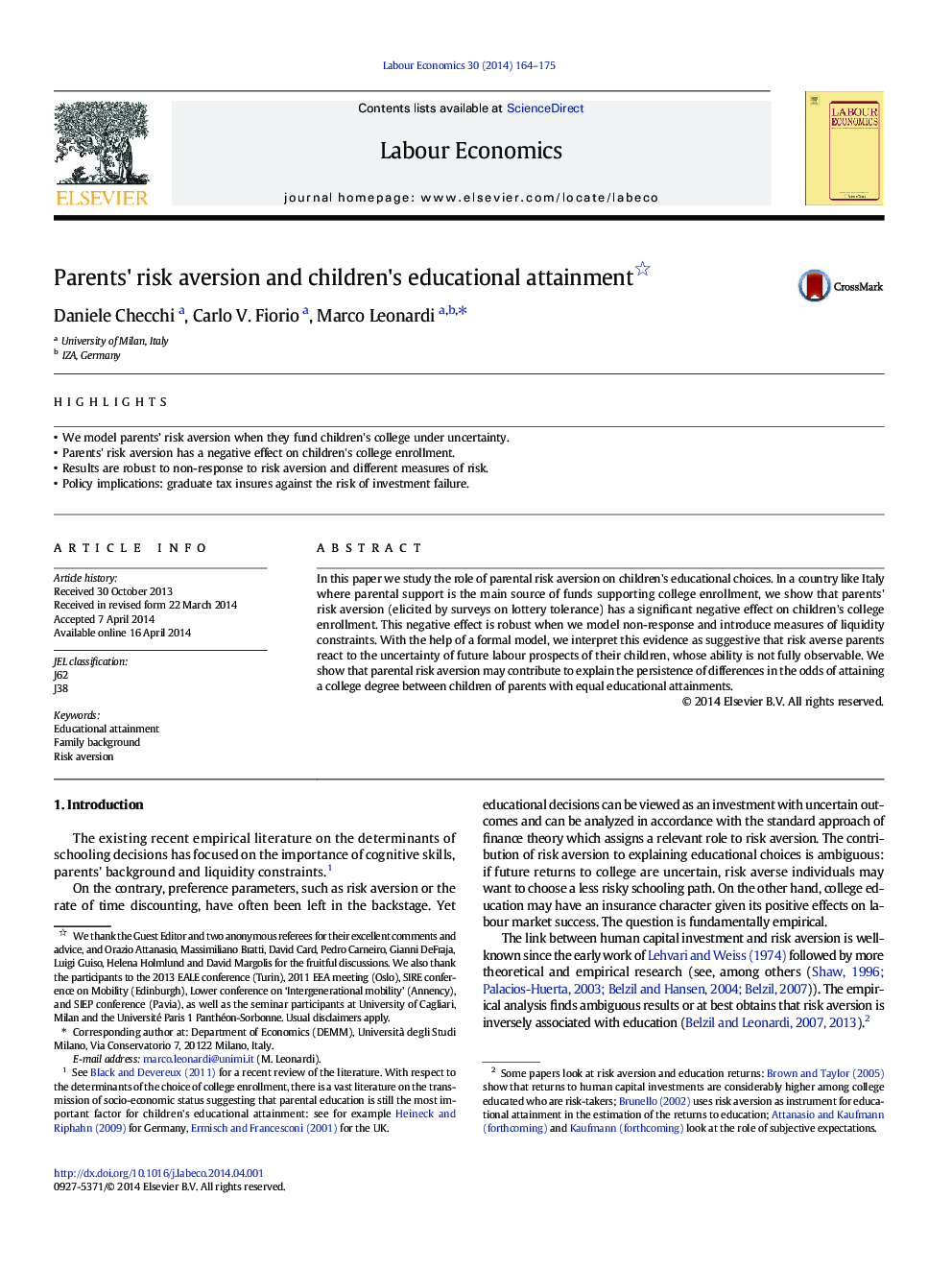| Article ID | Journal | Published Year | Pages | File Type |
|---|---|---|---|---|
| 972364 | Labour Economics | 2014 | 12 Pages |
•We model parents’ risk aversion when they fund children's college under uncertainty.•Parents' risk aversion has a negative effect on children's college enrollment.•Results are robust to non-response to risk aversion and different measures of risk.•Policy implications: graduate tax insures against the risk of investment failure.
In this paper we study the role of parental risk aversion on children's educational choices. In a country like Italy where parental support is the main source of funds supporting college enrollment, we show that parents' risk aversion (elicited by surveys on lottery tolerance) has a significant negative effect on children's college enrollment. This negative effect is robust when we model non-response and introduce measures of liquidity constraints. With the help of a formal model, we interpret this evidence as suggestive that risk averse parents react to the uncertainty of future labour prospects of their children, whose ability is not fully observable. We show that parental risk aversion may contribute to explain the persistence of differences in the odds of attaining a college degree between children of parents with equal educational attainments.
